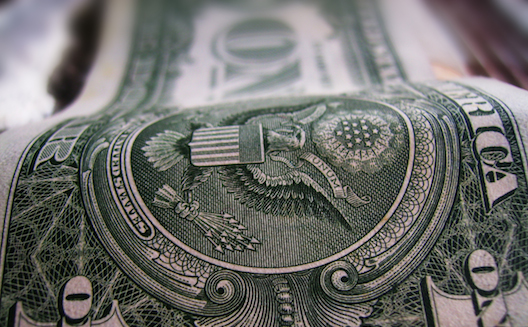The Middle Eastern startup blind spot: an obsession with money

This article was co-authored by Melltoo founders Sharene Lee and Morad Irsane
“How do you make money?” is a question everyone asks about Melltoo, the startup we founded. Melltoo is a social network for buyers and sellers, kind of like Twitter or Facebook for classifieds. At the moment we don’t actually make money and have no immediate plans to monetize.
We also hear: “What do I get in return?” when we ask people to spread the word about Melltoo.
It seems that startups in this region are obsessed with making money and that every action should be followed up with a check. We are in business to make money, we are not a charitable organization or even a social enterprise. However, monetization requires vision and strategic implementation. In many cases, giving it free can help you build a stronger, more dynamic business.
Build free alternative channels of monetization
You cannot start a tech business today without Facebook. Their sign-up has become de facto for a business to grow a user base quickly. When users sign up on a website via Facebook, the website can obtain the user’s public data. By facilitating this, they are giving businesses access to their users for free. You think this might be counterintuitive, that is until you realize what this means: Facebook can continue to track their users even when the user is using a different product. This then opens up monetization channels for Facebook that were otherwise closed. Think of all the targeted ads you receive in your Facebook feed for products similar to ones you currently use.
In the region, startups are very conservative with their monetization strategies. They generally monetize on their core business proposition. However, the most successful global businesses are giving their main product for free and monetizing on value-added services. Marketplace startups like Uber and AirBnB do not charge users to list products, they make money off facilitating payments. WeChat makes money off its 500 million users not by charging to use its chat services but by selling virtual stickers.
Build up your local ecosystem for free
We’re knee-deep in our first external funding round so we reached out to a local startup incubator to connect us with the right investors. The response: “Why should we help you, what’s in it for us?” This is a curiously short-sighted response coming from an incubator. Funding is difficult in our ecosystem because we don’t have many strong startups, nor many successful exits, and we don’t have them because funding is difficult. Creating opportunities for startups uplifts the ecosystem in general which can only be a payoff for everyone at the end.
We have reached out to many different startups in the past six months for collaboration and cross promotion. We’ve often been met with skepticism and the inevitable: “How much do I have to pay?” We don’t want compensation, we want to create win-win situations where our startups can mutually benefit from the collaboration. Making money in this case is not the point, especially if it will limit opportunities later (other startups won’t want to collaborate). I certainly wouldn’t recommend startups to incubate with Mr. What’s in it for us?.
 Build long-term
relationships with your users for free
Build long-term
relationships with your users for free
Don’t be in a hurry to make money. Funding in this region is scarce and few startups have the leisure to be free for long. In some cases, it’s monetize or die. But if you can hold off monetization, do so (this applies mainly to businesses that are consumer-facing and rely on large user bases). Freemium works. If you give people an opportunity to try your product, get used to it and eventually rely on it, they will pay for it. However, making them pay from day one may mean that they won’t try it to begin with.
Consumers are savvier than ever. They know a good product when they see one and they appreciate and understand value. They also know when a company is trying to charge and run. Consumers like businesses that invest in long-term relationships with them. Giving it for free says 'I’m in it for the long run'.
In Dubai, there is a fee for everything. Users are surprised when we tell them Melltoo is free. Giving it free then allows us to impose conditions on our users, in our case to take beautiful pictures when posting items for sale. More than once, we’ve asked users to replace pictures or have taken them down. Users are okay with this because our product is free. And they appreciate the effort we put in to engage with them and to curate our community.
Give it free to keep your business alive and growing
Monetizing too early could harm your business. It means putting resources toward something other than growing. You have to hire business development people, build out your payment gateway, deal with banks and licensing. If you do not have enough users to monetize with, you won’t make enough money to justify this reallocation of time and resources. If it’s too early, monetizing won’t make you money, it’ll cost you money. If you have a product that users love, focus on building your user base and getting investment to sustain you to the point where monetization makes sense.
Making money is the mission of all businesses, but knowing how to do that requires vision and strategy. Don’t get caught up in the region’s obsession. When you don’t go looking for it, it comes looking for you.


